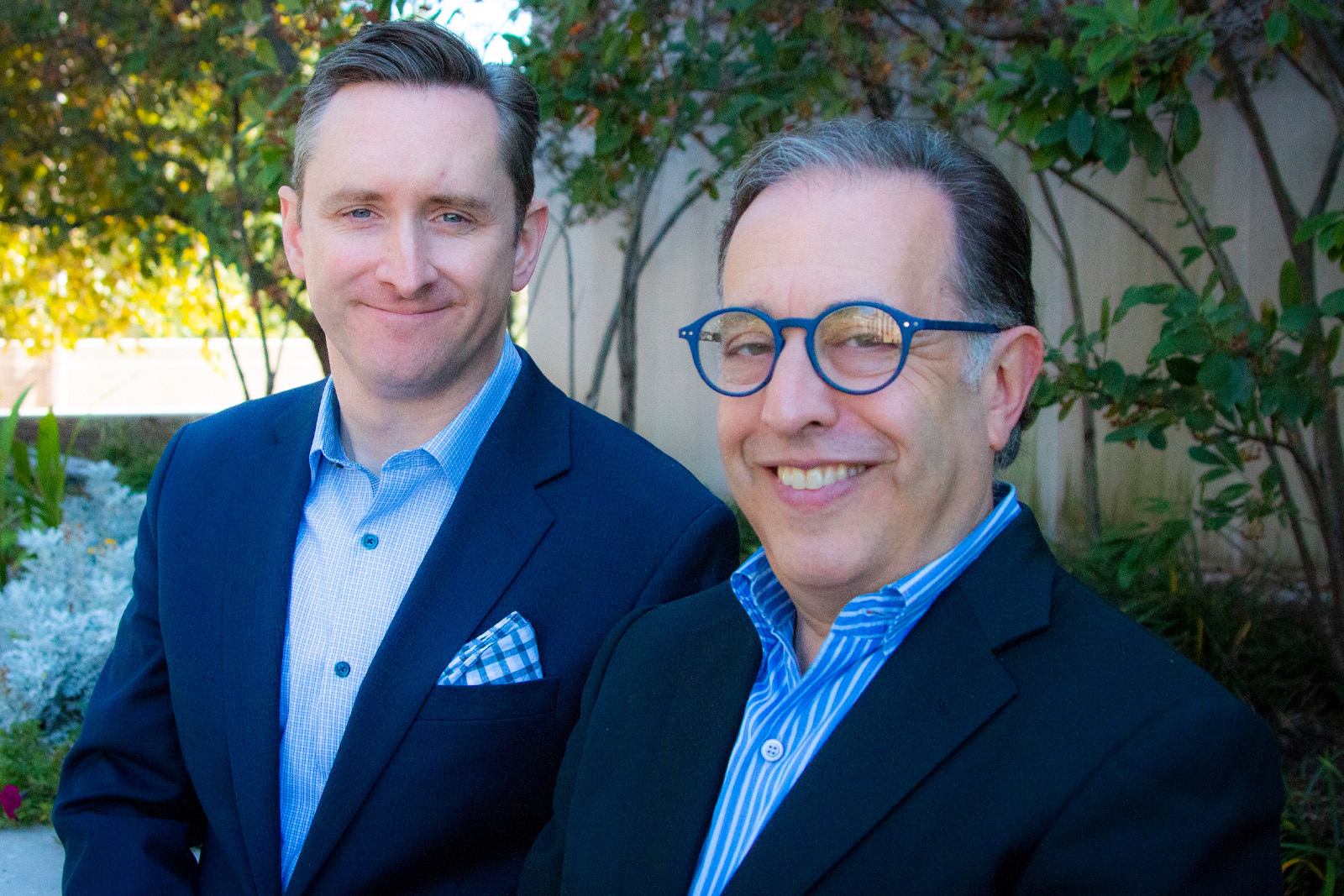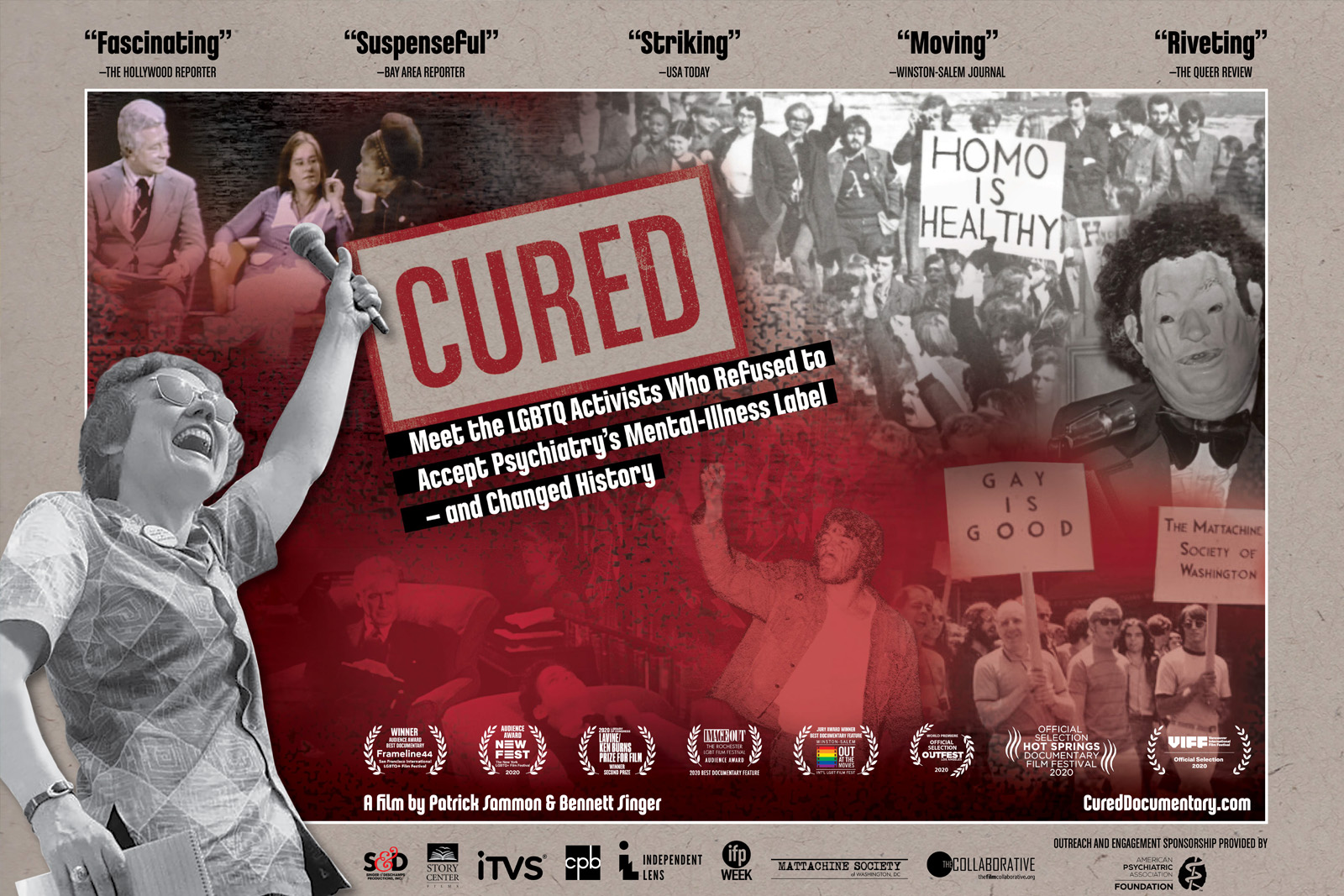Newhouse alumnus tells story of crucial victory for LGBTQ equality
Patrick Sammon ’97 co-directed “Cured,” a documentary chronicling the fight to remove homosexuality from the American Psychiatric Association’s official list of mental disorders.

When Patrick Sammon ’97 first arrived at Newhouse, he thought he was going to be a sports broadcaster. Now almost 30 years later, Sammon is an award-winning independent filmmaker.
His most recent project, “Cured,” is set to open this season of PBS’s Independent Lens Oct. 11. The documentary, which Sammon co-created with fellow documentary filmmaker Bennett Singer, follows the fight to remove homosexuality from the American Psychiatric Association’s official list of mental disorders. “Cured” has won the audience award from Frameline, the biggest LGBTQ film festival in the world, and Best Documentary of 2021 from the American Historical Association. We talked to Sammon about the importance of LBGTQ history, his career path and how sometimes the best way to begin a career in documentary filmmaking is to just try to make a documentary on your own.
How did this documentary come about?
A friend [asked me to] read his film script and [had a scene that took place at] the 1972 APA annual meeting when Doctor Anonymous, a psychiatrist, had to dress in disguise in order to talk to his fellow psychiatrists about what it was like to be a gay psychiatrist. I had been familiar with this story, but reading my friend’s script, it jumped off the pages at me as something that would make an incredible documentary. I was pleasantly surprised that another documentary about the same subject hadn’t been done before, because this moment is so central in the history of LGBT equality. As long as we were classified as mentally ill, then business and government [will] use that as an excuse to discriminate. So this had to be the first domino to fall on the path to equality. I recruited my friend Bennett Singer to join me, and we did our first interview in the spring of 2015. We finished the production right before the pandemic. We were still doing online editing during the early days of the pandemic, and we released it virtually in film festivals in August 2020. Now, we’re excited to bring it to a national television audience.

What did you hope to achieve?
We really wanted to have this film as a testament to the courageous individuals who stepped up and achieved this victory, and that was one of our challenges in telling this story. The outcome of this fight wasn’t inevitable. It’s often easy when looking back through history to say, “Well, it was always going to turn out that way,” but actually events turn out that way because of the actions of individuals who join a fight and try to create change. When these activists started fighting in the late 60s and early 70s, it was a David vs. Goliath situation. So that was also one of the things we wanted to convey in the film—this outcome wasn’t inevitable. From a filmmaking perspective, that was a challenge because everyone knew the outcome of this story when they started watching it, but you need to try and create drama along the way, and I hope that we did that.
What was your path from studying broadcast journalism at Newhouse to co-creating this award-winning documentary?
I’ve basically had three careers. I started as an intern at the CBS affiliate in I’ve basically had three careers. I started as an intern at WWNY, the CBS affiliate in Watertown [New York] during my junior year at Syracuse. After graduation, I joined full-time as a news reporter. Then in ’99, I worked as a general assignment reporter in Tennessee at WJHL. I enjoyed being a reporter but knew I didn’t want to do it forever
From that experience, I knew I was interested in documentary filmmaking, so after doing some networking, I moved to Washington, D.C. in January of ’03 with no job, everything I owned in my car and $3,000 in the bank. I ended up taking a detour and worked in LGBT activism at Log Cabin Republicans for five years, but I always wanted to get back to documentary filmmaking. When I left in 2009, my résumé was odd, so at that point, I knew the best way for me to get into documentary filmmaking was to just make a documentary.
I then embarked on making a documentary called “Codebreaker” about the life and legacy of Alan Turing, the gay British codebreaker, and during that production, I met Bennett Singer, my co-director on “Cured.” It’s been quite a long journey, but ultimately I’ve always been interested in storytelling, and that’s really what’s propelled my career forward.
What advice would you give to Newhouse students just starting out in their careers?
You just have to put one foot in front of the other. If I knew, on the day I decided to try and make “Codebreaker,” that it would take so many years to create and distribute, I would have gotten discouraged. Similarly, with “Cured” it’s been such a journey. So just take one foot in front of the other and don’t get discouraged.
Elizabeth Kauma is a senior in the magazine program at the Newhouse School.